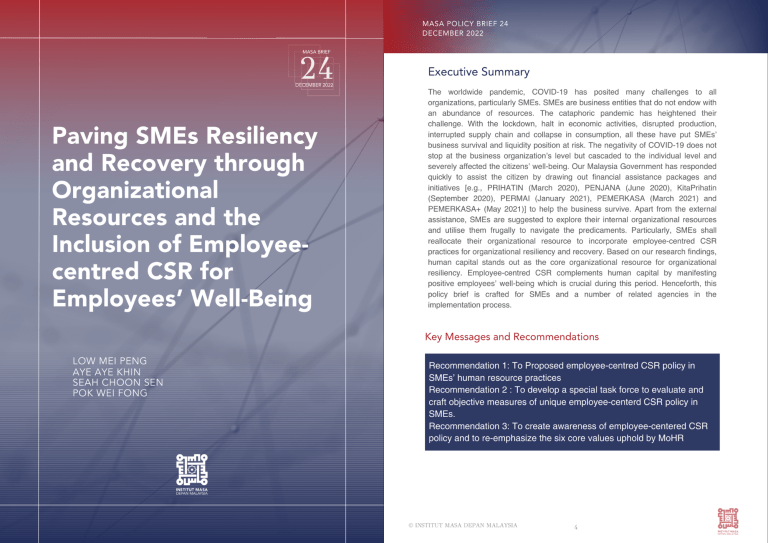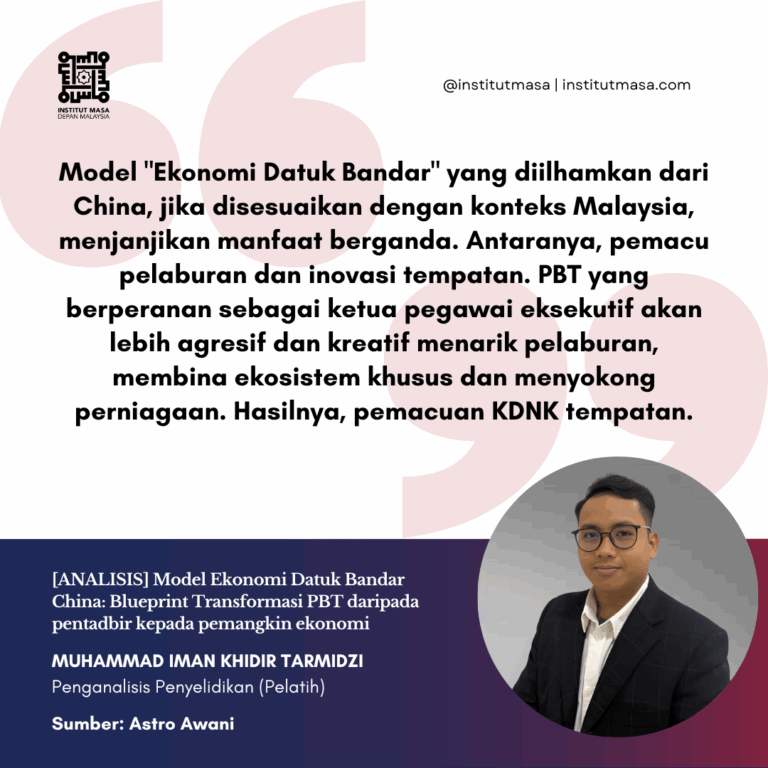The worldwide pandemic, COVID-19 has posited many challenges to all organizations, particularly SMEs. SMEs are business entities that do not endow with an abundance of resources. The cataphoric pandemic has heightened their challenge. With the lockdown, halt in economic activities, disrupted production, interrupted supply chain and collapse in consumption, all these have put SMEs’ business survival and liquidity position at risk. The negativity of COVID-19 does not stop at the business organization’s level but cascaded to the individual level and severely affected the citizens’ well-being. Our Malaysia Government has responded quickly to assist the citizen by drawing out financial assistance packages and initiatives [e.g., PRIHATIN (March 2020), PENJANA (June 2020), KitaPrihatin (September 2020), PERMAI (January 2021), PEMERKASA (March 2021) and PEMERKASA+ (May 2021)] to help the business survive. Apart from the external assistance, SMEs are suggested to explore their internal organizational resources and utilise them frugally to navigate the predicaments. Particularly, SMEs shall reallocate their organizational resource to incorporate employee-centred CSR practices for organizational resiliency and recovery. Based on our research findings, human capital stands out as the core organizational resource for organizational resiliency. Employee-centred CSR complements human capital by manifesting positive employees’ well-being which is crucial during this period. Henceforth, this policy brief is crafted for SMEs and a number of related agencies in the implementation process.
#24 : Paving SMEs Resiliency and Recovery through Organizational Resources and the Inclusion of Employee-centred CSR for Employees’ Well-Being
- Laporan Dasar, Program Pembangunan Dasar MASA
Kongsi Artikel
Artikel Lain
Artikel
Oleh Muhammad Iman Khidir Tarmidzi Dalam struktur pentadbiran Malaysia, pihak berkuasa tempatan (PBT)...
Artikel
Oleh Solahuddiin Ismail Mina Jangka hayat ketika lahir adalah satu anggaran purata umur...
Artikel
Oleh Mohamad Fauzi Ahmad Meskipun ekonomi Malaysia bergantung pada permintaan domestik, sumbangan bumiputera...
Artikel
Oleh Muhammad Iman Khidir Tarmidzi Siswazah muda dalam dekad kebelakangan ini, terperangkap dalam...
Artikel
Oleh Muhammad Iman Khidir Tarmidzi Dalam struktur pentadbiran Malaysia, pihak berkuasa tempatan (PBT)...
Artikel
Oleh Solahuddiin Ismail Mina Jangka hayat ketika lahir adalah satu anggaran purata umur...
Artikel
Oleh Mohamad Fauzi Ahmad Meskipun ekonomi Malaysia bergantung pada permintaan domestik, sumbangan bumiputera...
Artikel
Oleh Muhammad Iman Khidir Tarmidzi Siswazah muda dalam dekad kebelakangan ini, terperangkap dalam...
Artikel
Oleh Muhammad Iman Khidir Tarmidzi Dalam struktur pentadbiran Malaysia, pihak berkuasa tempatan (PBT)...




